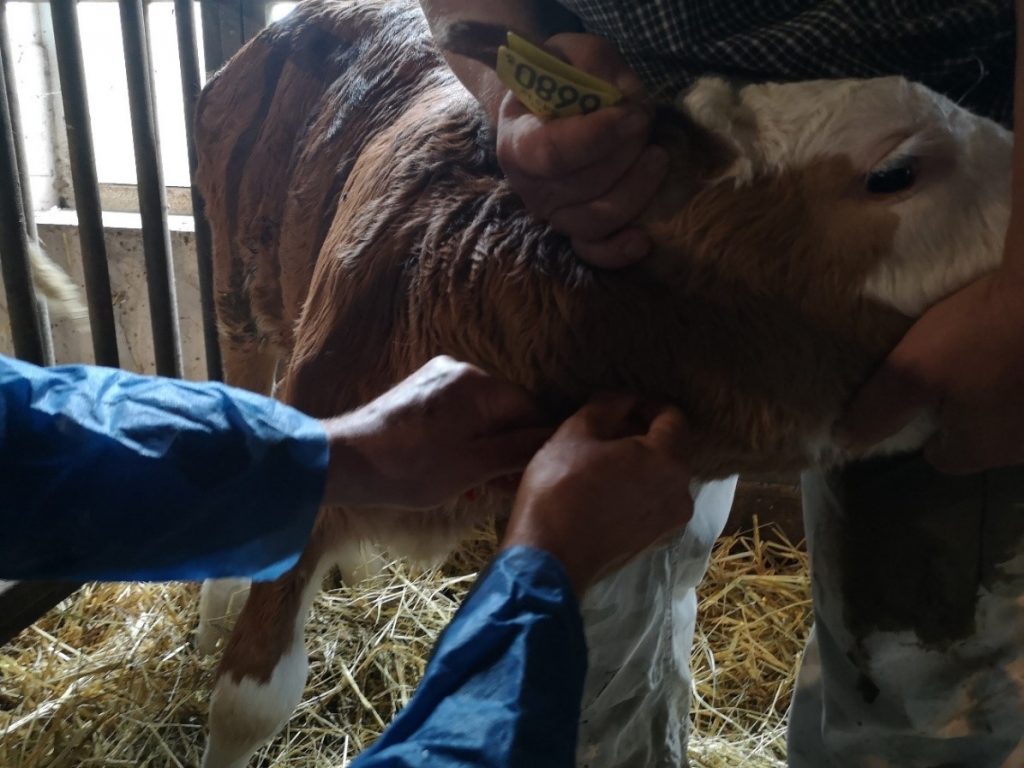In Poland, the system for the identification and registration of animals (cattle) is based on ear tags and passports. However, the system is far from perfect and leaves the door wide open to abuse. Popular ear tags may be lost by the animal, destroyed or transferred to another animal. There is also a risk that unregistered animals will be kept on farms and slaughtered outside the system. The growing consumer awareness means that they expect not only remedial actions but also clear and transparent information about origin of the foods. As a result, it was decided at national level to implement a food passporting strategy, which is an innovative solution at both Polish and European level. The use of product tracking and identification systems becomes a necessity while guaranteeing that the Polish agri-food sector will maintain its position as a significant food supplier in the world.
The “Polish Food Passporting” project provides for building a digital system to guarantee efficient tracking and identification of information on agri-food products throughout the supply chain (“from farm to table”).
It is therefore necessary to tighten the system for raising of and trade in animals through introduction of modern solutions, which will fully allow identifying animals and guaranteeing that the tagging persists over the entire life cycle of the animal.
The National Research Institute of Animal Production and Farm Innovations Sp. z o.o. began to implement a modern technology for permanent identification of animals and monitoring their health and vitality through the use of unique subcutaneously implanted chips for temperature measurement and transponders for continuous and autonomous reading of the chips. The applied system registers temperature twice daily, which represents a step forward in terms of prophylaxis as regards the measurement of body temperature in farm animals. If elevated temperature is detected, the SAiND system algorithms compel the next two measurements at an interval of one hour to confirm their validity and alert the breeder or veterinarian regarding a specific animal. This technology is operated through the Stado.pl application, which is available in web or mobile form.
The developed solution forms a basis for the research project involving the innovative Stado.pl system with a SAiND microchip, “Development of the innovative AnTRACK system for cattle monitoring in the course of development work” as part of the 1/1.1.1/2021 Fast Track competition.
This project will result in a sophisticated system for much broader monitoring of cattle than previously. The system will consist of the following components: a wireless chip-implant, which will store a unique identification number (UniqueID) and measure internal body temperature, as well as a transponder, affixed to the animal’s skin, which will allow for supervising and reporting on the animal’s location, monitoring its motor activity and uniquely identifying it while providing for wireless powering of the implant. The external component (transponder) will be protected against unauthorized removal. The device is designed so as to trigger an instant alarm in the event of unauthorized removal/shut-off and protect it from unpairing from the external device. This prevents changing the animal’s identity.
The described technology will provide comprehensive information about the animal’s health during farm inspection visits while making it possible to effectively combat disease outbreaks and quickly responding to emergency situations through identification of individual cattle in the early stages of disease.
Advantages of the system
A characteristic feature of the external monitoring device affixed to the animal’s skin (transponder) will be its capacity for long-term autonomous operation using the energy harvesting system based on sunlight (external) and artificial light (in the barn). On the one hand, it will enable long-term operation without the need for user intervention throughout the animal’s lifetime, and, on the other, it will enable continuous measurements when the power system has a favourable energy balance.
In order to meet the need for organizing food passporting and exercising full oversight already at production level, the National Research Institute of Animal Production, alongside Farm Innovations, had the first two herds in Poland chipped. One herd, of Polish Holstein-Friesian cattle, is located at the Institute’s Experimental Station in Grodziec Śląski, and another herd, of Simmental cattle, is kept at the Institute’s Experimental Station in Odrzechowa.
In each herd, 50 animals were chosen for the tests and chipped. These are the first herds in Poland to be fully monitored for viability, health and scale of movement.


